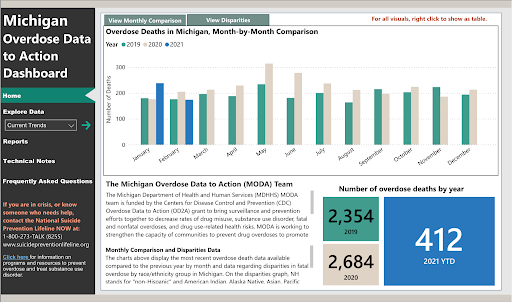First responders will not be allowed to leave Narcan behind at the site of opioid overdoses, following a vote by the Hillsdale County Medical Control Authority on Sept. 20.
The initiative, which was proposed earlier this year as part of a statewide push to combat overdoses, was defeated in a 16-6 vote. The proposed protocol would have allowed first responders to leave behind life-saving naloxone, better known by its brand name, Narcan.
Narcan works by blocking opioid receptors in the nervous system to halt opioid overdose. Eighteen other counties in Michigan have a “leave-behind” protocol for Narcan, which allows first responders to leave the drug behind at the scene of an overdose. While Narcan will not be left at the scene by police, EMTs, or paramedics, it is still carried by first responders in order to stabilize overdose patients.
The leave-behind policy is a state protocol, but it requires adoption by local medical control authorities, according to County Commissioner Brad Benzing, a member of the Hillsdale County MCA who voted against the proposal.
Benzing, a firefighter and EMT, raised concerns about the duration of Narcan, which could lead to an individual returning to a state of overdose after refusing further medical treatment
“Naloxone has a shorter life than the opioids do, meaning that an individual can return to respiratory arrest,” Benzing said.
When asked if the Hillsdale County MCA voted against the measure for fear of incurring higher costs, Benzing pointed to the minimal cost of running a naloxone leave-behind program. “The state actually provides naloxone at no charge to the local medical control authorities, so the only skin in the game is that they put the product in a Ziploc bag,” Benzing said.
Other members voted against the measure due to concerns about illicit drug use, according to Benzing.
“The concerns are that if we have this product available, then people are encouraged to use narcotics in a way that is potentially life-threatening, and not have to deal with the consequences,” Benzing said.
Overdose deaths rose during the pandemic. In May 2020, the number of statewide opioid overdose deaths increased to 314, compared to 234 the same time in 2019, according to Michigan Department of Health and Human Services. Benzing stressed the continued presence of opioids in the community.
“Opioids are not going to go away,” Benzing said.
Benzing suggested that members of the general public receive first-aid training, including the administration of Narcan.
“It is good for anyone, just as a responsible citizen, to learn CPR, to use AEDs, Stop the Bleed training, naloxone administration,” Benzing said.

